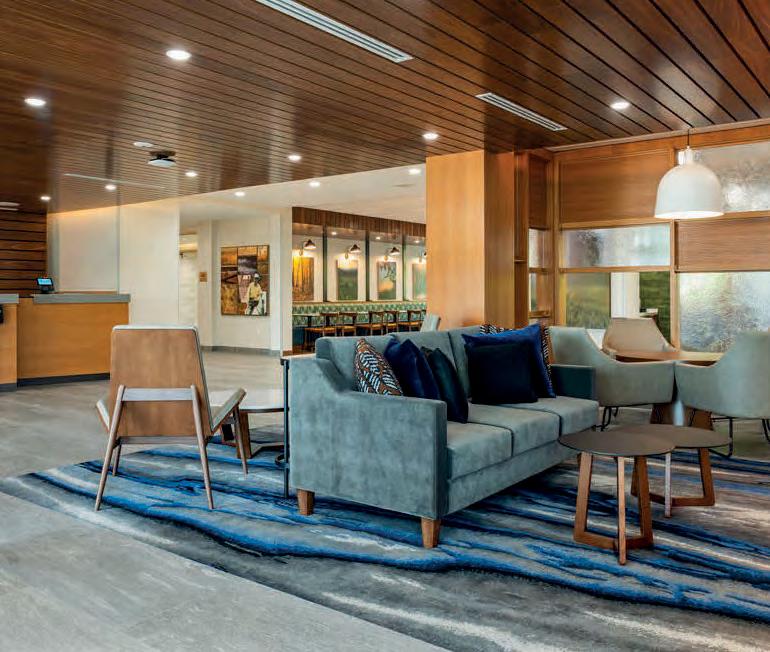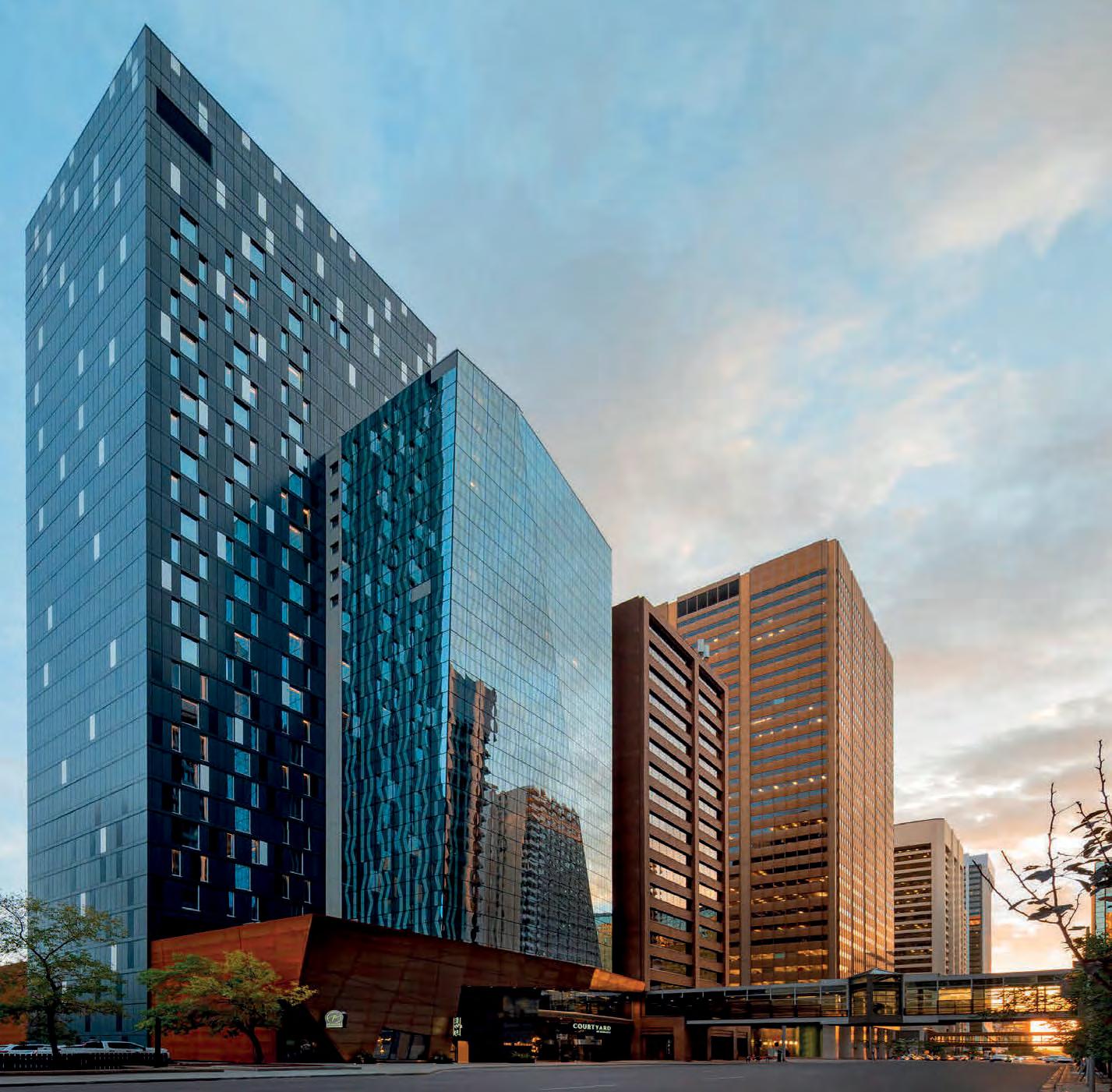
Be Seen.

































With a new season, comes new hope for the year ahead. After three years of turmoil and turbulence, all indicators are showing positive news for the Canadian hotel industry. According to the Canadian Lodging Industry Overview, a report produced by Cushman & Wakefield, “there is a significant uptick in demand and RevPAR improvements across the major Canadian markets of Toronto, Montreal, and Halifax, with each of these cities exceeding pre-COVID levels for the first time” since the pandemic hit the industry. According to this report, overall, 2022 RevPAR has increased by 91 per cent over the previous year and is 3.5 per cent higher than year-end 2019 levels.
Certainly, that’s incredible news given that the onset of COVID19 caused a RevPAR decline of 60 per cent in 2020. Looking back, the report shows that the beginnings of the recovery started earlier than expected in 2021 with a 35 per cent improvement in RevPAR. According to the report, after a weak Q1, the recovery took hold in Q2 with RevPAR increasing by 95.3 per cent in 2022. The data shows the growth was largely fuelled by ADR growth as demand still lags behind pre-COVID levels.
Starting last June, ADR exceeded 2019 levels and was driven by pent-up leisure demand concentrated on weekends and vacation periods, as well as general inflation in the economy. The report says that room demand was also up, but it only began to exceed 2019 levels in September, with December showing the largest gain over 2019 levels.
The cities that have witnessed the largest RevPAR improvements this year have been Toronto, Montreal, and Halifax at 161 per cent, 159 per cent, and 158 per cent respectively. Following on their heels are Quebec City, Calgary, and Vancouver, which are all in the 124 per cent to 126 per-cent growth range.
On the flip side, Victoria, B.C., recorded the lowest RevPAR growth for this year-to-date period even though the city was consistently one of the best-performing markets in the country over the COVID period and, therefore, has less room for growth coming out of the pandemic.
Given the positive uptick in numbers, it’s not surprising that the pace of the recovery in 2022 has re-ignited interest in new hotel development. While land values have continued to increase, the report says “there has been some moderation in development costs. Moderating costs along with stronger market results have improved the feasibility of projects in many markets, including suburban growth areas and secondary and tertiary markets that have been under-served in the past.”
Certainly, these positive indicators bode well for hotel operators and the hotel development community. But it’s important to note that pervasive labour shortages impacting the industry present a mammoth challenge — one the hotel industry needs to grapple with immediately in order to ensure the continued sustainability of the industry. ◆

ROSANNA CAIRA Editor & Publisher
AMY BOSTOCK Managing Editor
NICOLE DI TOMASSO Assistant Editor
COURTNEY JENKINS Art Director

JENNIFER O'NEILL Design Assistant

TYLER BECKSTEAD Web Manager
JANINE MARAL Social Media Manager
WENDY GILCHRIST Director of Business Development
CATHI KREWICKI Account Manager

KIMONE CLUNIS Sales & Marketing Assistant/Events Co-ordinator

DANNA SMITH Administrative Assistant
DANIELA PRICOIU Accounting Services

CIRCULATION PUBLICATION PARTNERS kml@publicationpartners.com










Andrew Weir, Destination Toronto; Anne Larcade, Sequel Hotels & Resorts; Anthony Cohen, Cresent Hotels — Global Edge Investments; Bonnie Strome, Hyatt Hotels; Christiane Germain, Germain Hotels; Don Cleary, Marriott Hotels; Gopal Rao, Conestoga College; Hani Roustom, Friday Harbour Resort; Heather McCrory, Accor; Laura Baxter, Co-Star Reetu Gupta, Easton's Hotels; Ryan Killeen, The Annex Hotel Ryan Murray, The Pillar + Post Hotel; Stephen Renard, Renard International Hospitality & Search Consultants
HOTELIER is published eight times a year by Kostuch Media Ltd., Mailing Address: 14 – 3650 Langstaff Rd. Ste. 33, Woodbridge, ON L4L 9A8, (416) 447-0888. Subscription rates: Canada: $25 per year, single issue $4, U.S.A.: $30 per year; all other countries $40 per year. Canadian
Mail Product Sales Agreement #40063470. Member of Canadian Circulations Audit Board and Magazines Canada. Printed in Canada on recycled stock.
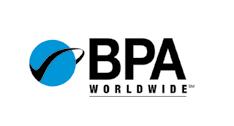
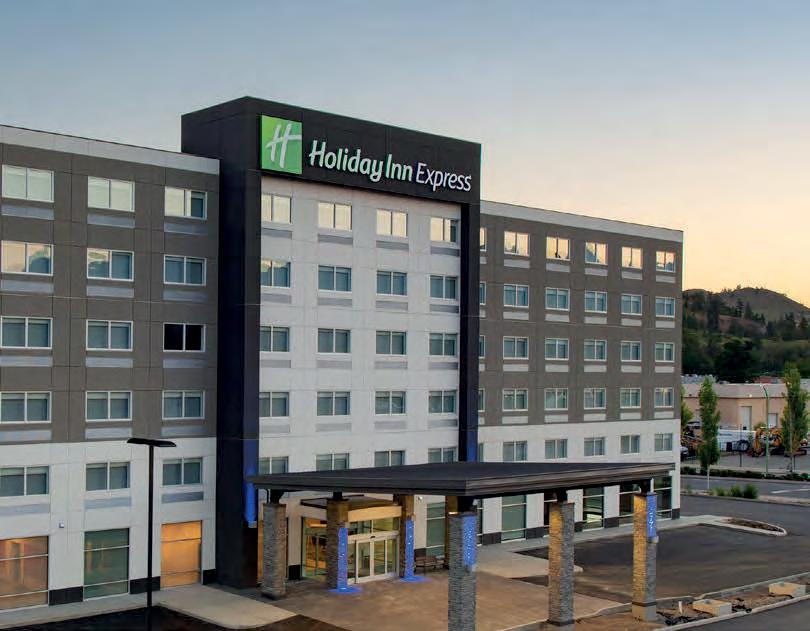

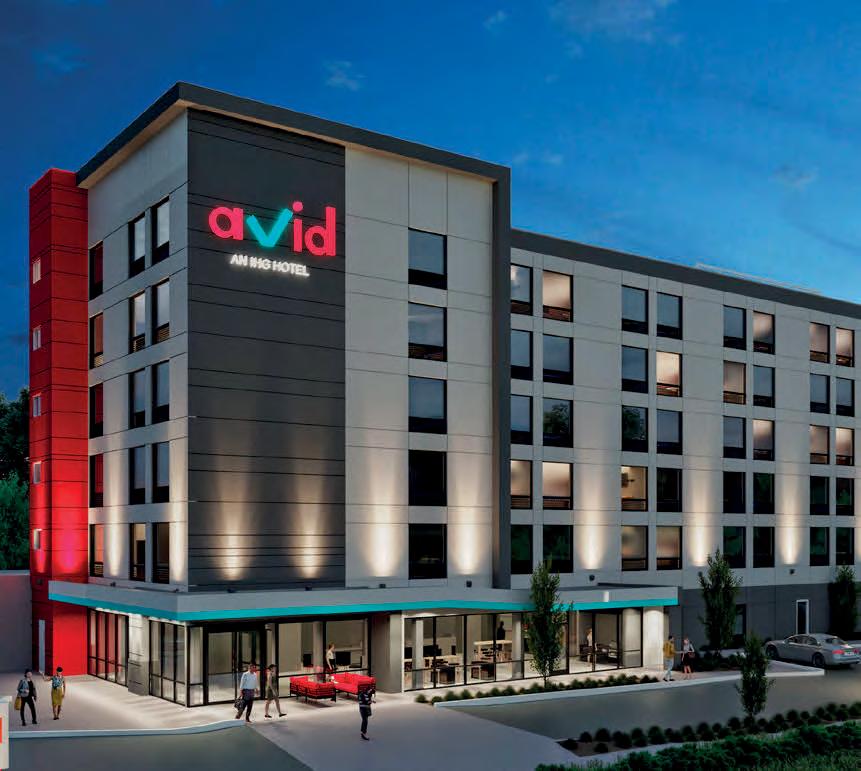
Between 2022 and 2050, the cumulative economic impacts are projected to be:
• $30.6 billion in foregone output
• $16.6 billion in forgone GDP
• 168,000+ FTEs of foregone employment
• $7.5 billion in foregone tax revenue for all three levels of government
According to a new study released last month by Destination Vancouver, without new investment, the lack of hotel supply in Metro Vancouver will translate into significant losses to the provincial economy.

The study, Economic Analysis of Hotel Supply and Projected Demand in Metro Vancouver, 2023 to 2050 , shows that to close the gap between current supply and projected demand, 20,000 new hotel rooms are needed in Metro Vancouver by 2050; with 10,000 of those new hotel rooms necessary just in Vancouver.
“Metro Vancouver’s infrastructure is not keeping up in delivering on our global profile,” says Royce Chwin, Destination Vancouver’s president & CEO. “This is critical because on our doorstep over the next few years are tennis’ Laver Cup, the Invictus Games, next year’s Grey Cup and in 2026 we’re a host city for the world’s largest single sport event, the FIFA World Cup.”
If the supply of hotel rooms remains at current levels, demand will exceed supply by 2026 in the summer months in the City of Vancouver; by 2028 in the summer months in the rest of Metro Vancouver; and by 2040, every month of the year across Metro Vancouver.
The pandemic removed an additional 550 rooms from the city’s inventory, with purchases by BC Housing and City of Vancouver, which converted those rooms to supportive housing.
The precursor to this report (published in 2019) included projections from 2022 to 2030, which is now too short a planning horizon for development timelines. The projections in this new report are in line with the planning horizons of the Vancouver Plan and the Broadway Plan.
The City of Vancouver did pass an interim hotel development policy in 2018 but it is just a policy statement. To make a tangible impact on the hotel inventory, substantial new investment is needed, both to mitigate loss through re-development and to encourage new development.

Existing development applications and permits for additional hotel capacity submitted to the City of Vancouver are insufficient to replace the losses. And the total estimate of approximately 1,100 new rooms in re-zoning, planning, or permitting stages through to 2026 is by no means guaranteed.
“This is crucial for our global destination competitiveness,” says Chwin. “Lack of available hotel rooms will make visiting Vancouver even more expensive, and the city will be less competitive in attracting major conferences, large sporting events and leisure-group travel. Vancouver is running short on time to prepare for the influx of visitors and the economic impact they contribute to the city. Those visitors will just go elsewhere.”
Chef Adam Middleton is the new executive restaurant chef at Fairmont Waterfront and its signature restaurant and bar, ARC.
Hailing from the U.K., Middleton brings 15 years of experience in international restaurant operations. He received first-hand knowledge working in kitchens throughout Europe and North America, honing his skills in classic British, Italian and French cuisine styles.
Over the course of his career, Middleton worked at Wolseley Hospitality Group’s Michelin Guide-listed venues Bellanger, The Delaunay and Colbert in London, where he spent several years as head chef. In 2020, he moved to Vancouver and joined Nemesis Coffee as executive chef and partner. During his time, he managed three executive chefs and 25 cooks across three venues and launched the high-end dinner series “Word,” a six-course tasting menu that’s now a monthly sell-out success.
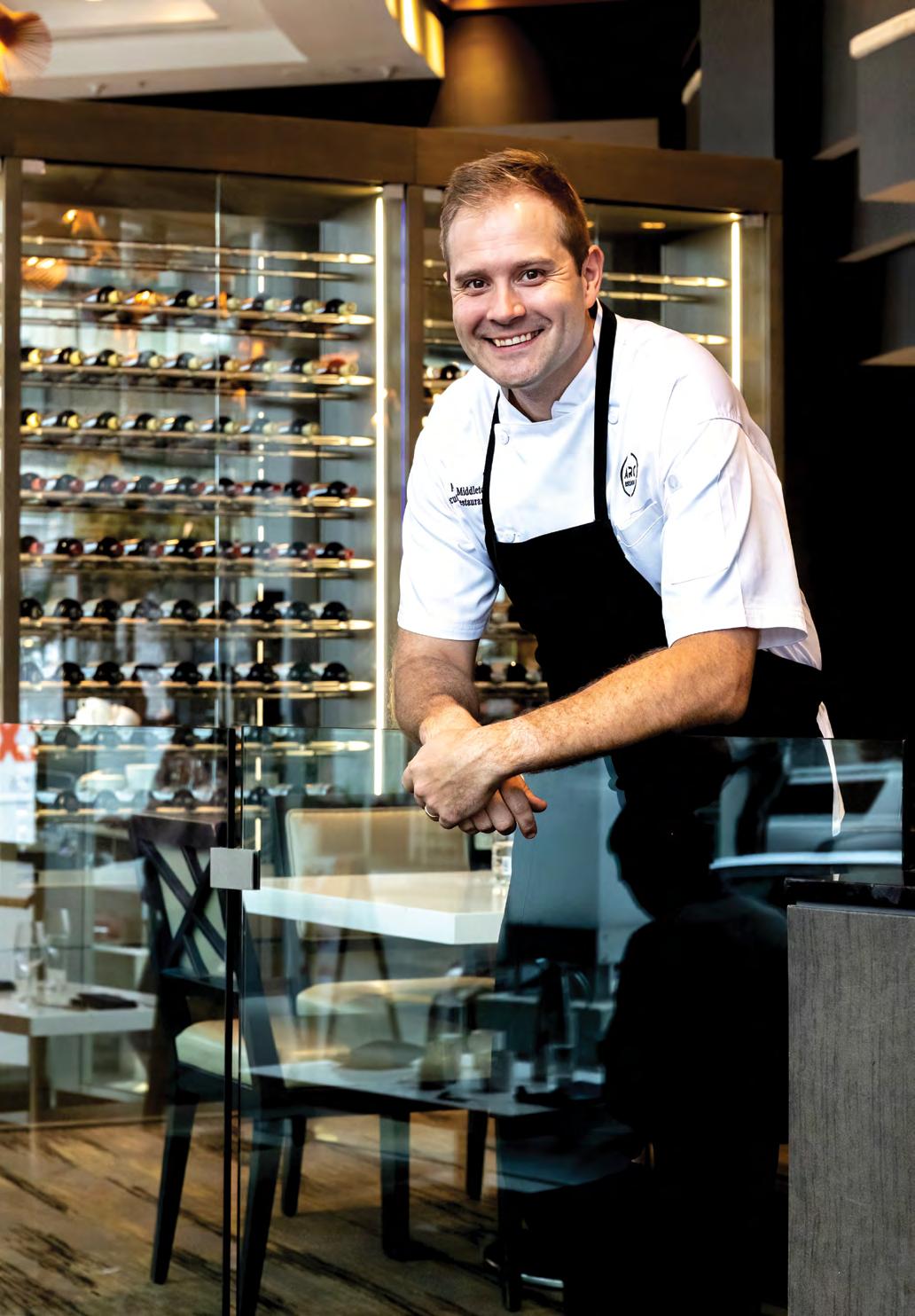
In his new role at Fairmont Waterfront, Middleton will oversee the culinary direction of ARC Restaurant + Bar. Recently, Middleton launched an elevated version of the ARC After Dark, which will feature share plates paired with classic Italian Amaro. He also plans to launch new lunch and dinner menus this spring and introduce creative weekly specials using fresh seasonal ingredients from the hotel’s rooftop garden.
Days Inn – Canada has opened its newest franchised hotel, the Days Inn by Wyndham Victoria Airport, in Sidney, B.C. The hotel boasts a wide range of amenities, including 88 spacious guestrooms and suites, complimentary Wi-Fi, a fitness centre, an outdoor heated pool, a business centre and an on-site restaurant serving lunch and dinner. Additionally, the hotel offers guests complimentary airport and ferry shuttle services.
All guestrooms include a flat-screen TV, plush bedding, a work desk, mini-fridge and microwave. Sizeable kitchenette suites and pet-friendly rooms are also available.

“Days Inn by Wyndham Victoria Airport Sidney is a wonderful addition to the Days Inn family of hotels across Canada and we are thrilled to welcome them to the brand,” says Irwin Prince, president and COO, Realstar Hospitality, master franchisor of the Days Inn brand in Canada. “This is the second Days Inn to open its doors in Canada this year, and we expect several more locations to join us in the coming months.”
The Spa at Four Seasons Toronto has introduced its newest addition to its bespoke treatments and services, the Wellness & Bio Bar. Short for biohacking, the Wellness & Bio Bar is focused on improving guests’ health, well-being and quality of life through strategic therapies.
Now available to the public, and after six months of extensive training, the team has curated a menu catering to specific goals centred around four pillars: mental, physical, spiritual and sexual wellness. The Wellness & Bio Bar is offering an array of resultsdriven services, including LPG Endermologie treatments, touch therapy for those living with cancer or who have a history of living with cancer, pre- and post-natal treatments, jet-lag recovery, celluma light therapy and hypnosis sessions.

Warwick Hotels & Resorts (WHR) has acquired Hôtel Le Crystal in downtown Montreal. The hotel will henceforth be known as Warwick Le Crystal-Montreal and is scheduled to welcome its first guests in May this year.








Warwick Le Crystal-Montreal will feature 131 guestrooms and suites, most of which will feature kitchenettes. The hotel also includes an indoor swimming pool, a fitness centre, underground parking, a number of meeting rooms and the celebrated spa Elements Maison de Beauté. At the lobby level, there is a renowned Asian restaurant, Siam.

Having built a strong presence in the hearts of international cities, such as Paris, New York, London, Geneva, Dallas, Chicago and San Francisco, WHR is expanding its geographical reach into Canada.
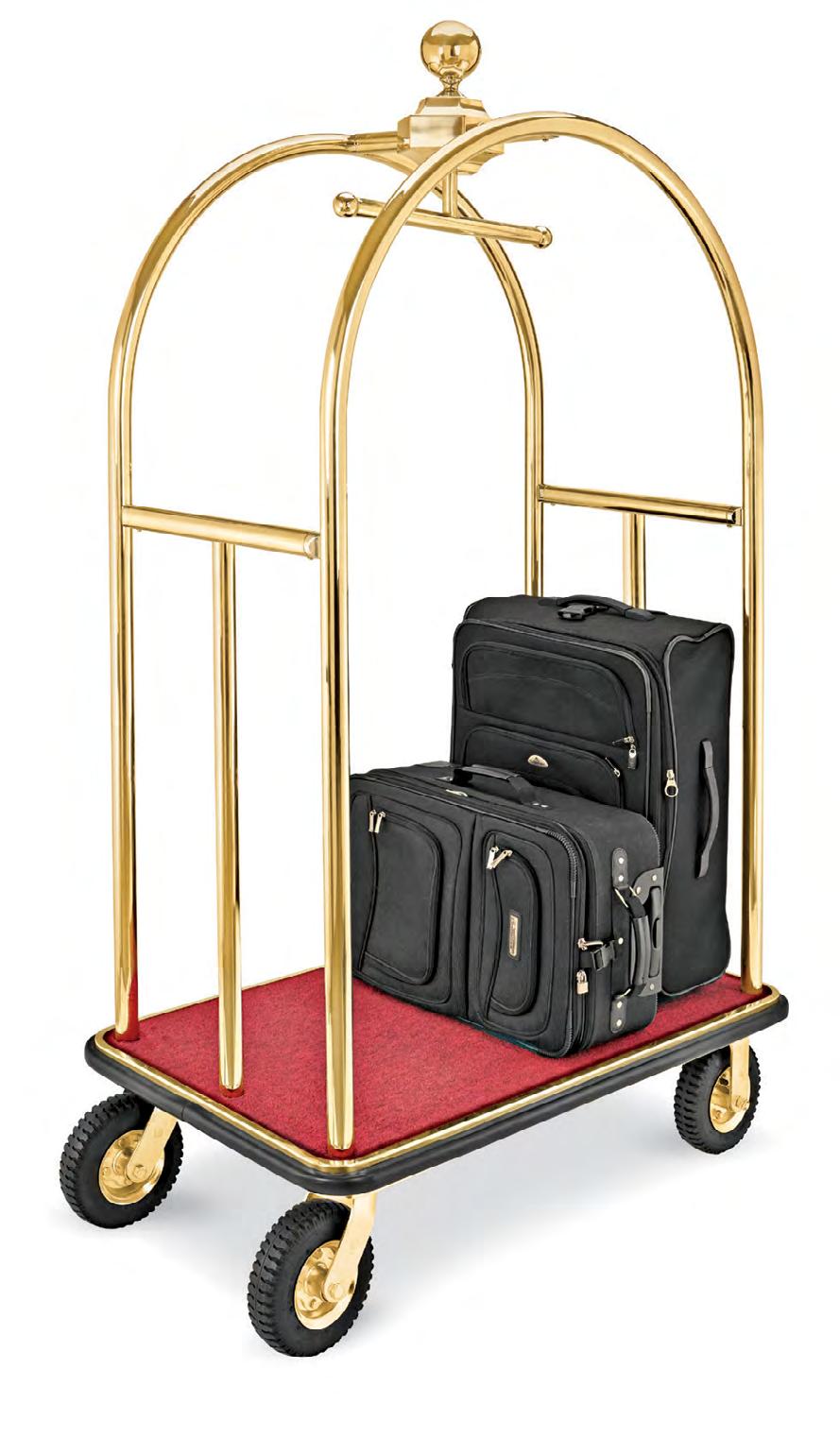







Great Canadian Entertainment’s new $1-billion entertainment resort, the Great Canadian Casino Resort Toronto, is scheduled to open its doors this summer. With its transformative architecture and 33-acre footprint, the destination adjacent to Woodbine Racetrack will feature a modern Vegas-style casino, integrated 400-room hotel, 5,000seat live entertainment venue and multiple on site dining experiences. The existing Casino Woodbine will continue to operate with no interruption until Great Canadian Casino Resort Toronto debuts its new, re-imagined destination.
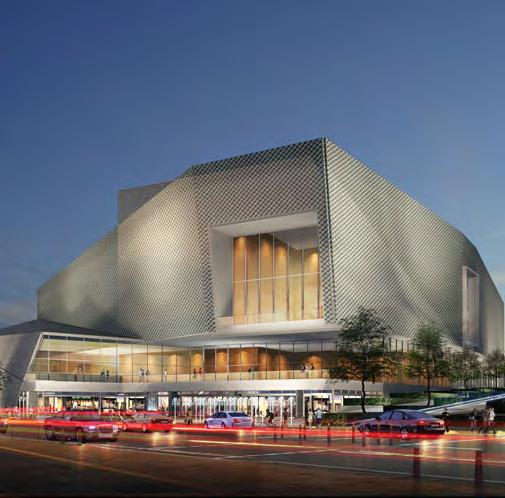





Accor co-founder, Gérard Pélisson, passed away on March 6 at the age of 91, surrounded by his loved ones.
In a news release, Accor said Pélisson “was an iconic pioneer who…inspired a modern approach to French hospitality at a time when it was poised for fresh ideas.”
Born in Lyon in 1932, Pélisson founded the French hotel firm in 1967. Pélisson and Paul Dubrule, who is 88, opened a Novotel in Lesquin, France, a suburb of Lille.


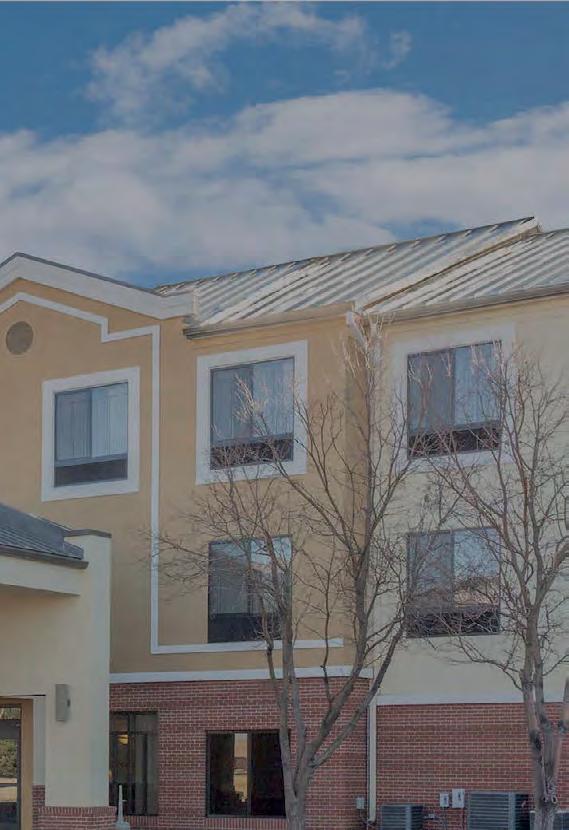

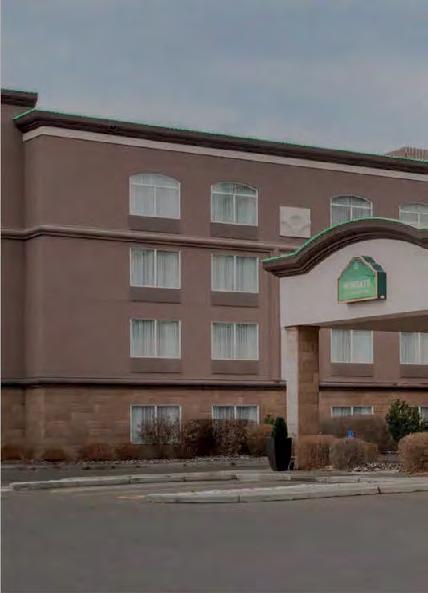
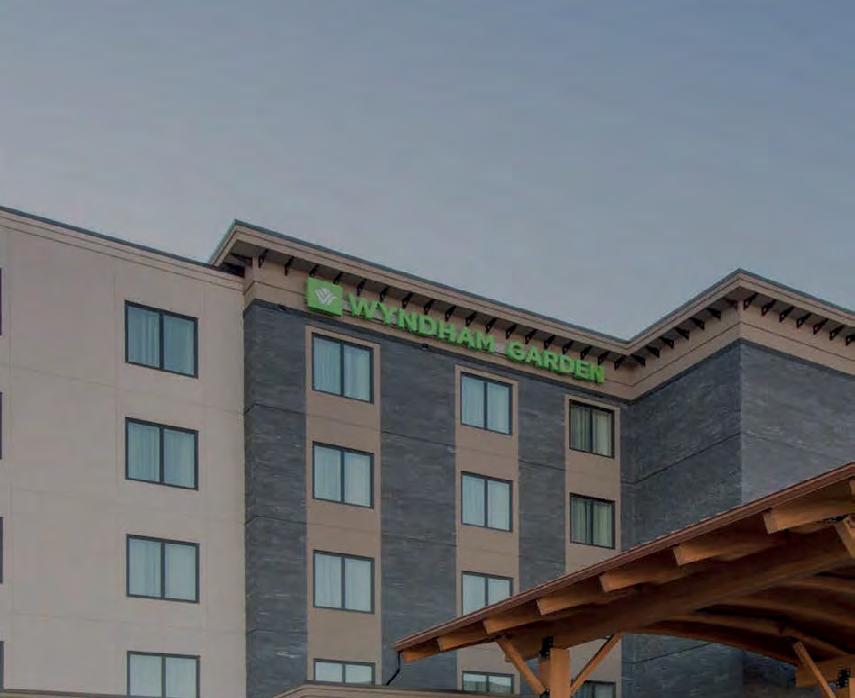



An astute businessman, Pélisson tenaciously pursued opportunities to expand the Group’s portfolio. For more than 40 years, he and Dubrule exemplified drive and determination in their pursuit of excellence, achieving major milestones including: establishing ibis in 1974, purchasing Mercure in 1975, and Sofitel in 1980; leading the merger with Jacques Borel in 1982; launching Formule 1 in 1985; integrating Lenôtre in 1990 and acquiring Compagnie Internationale des Wagons-Lits et du Tourisme in 1991.

Kate Colley and Ned Bell will be returning to Vancouver to focus on their consultancy, Hatch Hospitality. The husbandand-wife team launched the Naramata Inn back in late 2019, a project that became their primary focus until early this year. The duo remain minority partners in the wine country Inn.

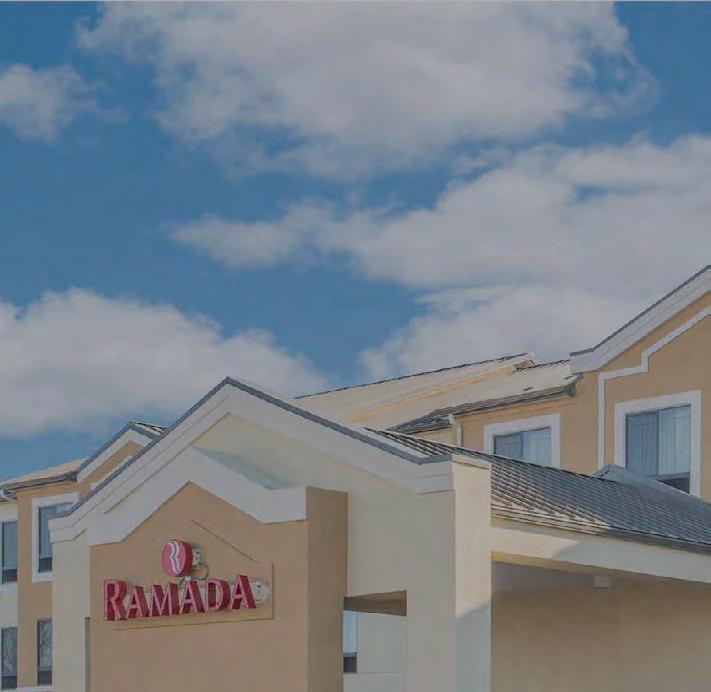
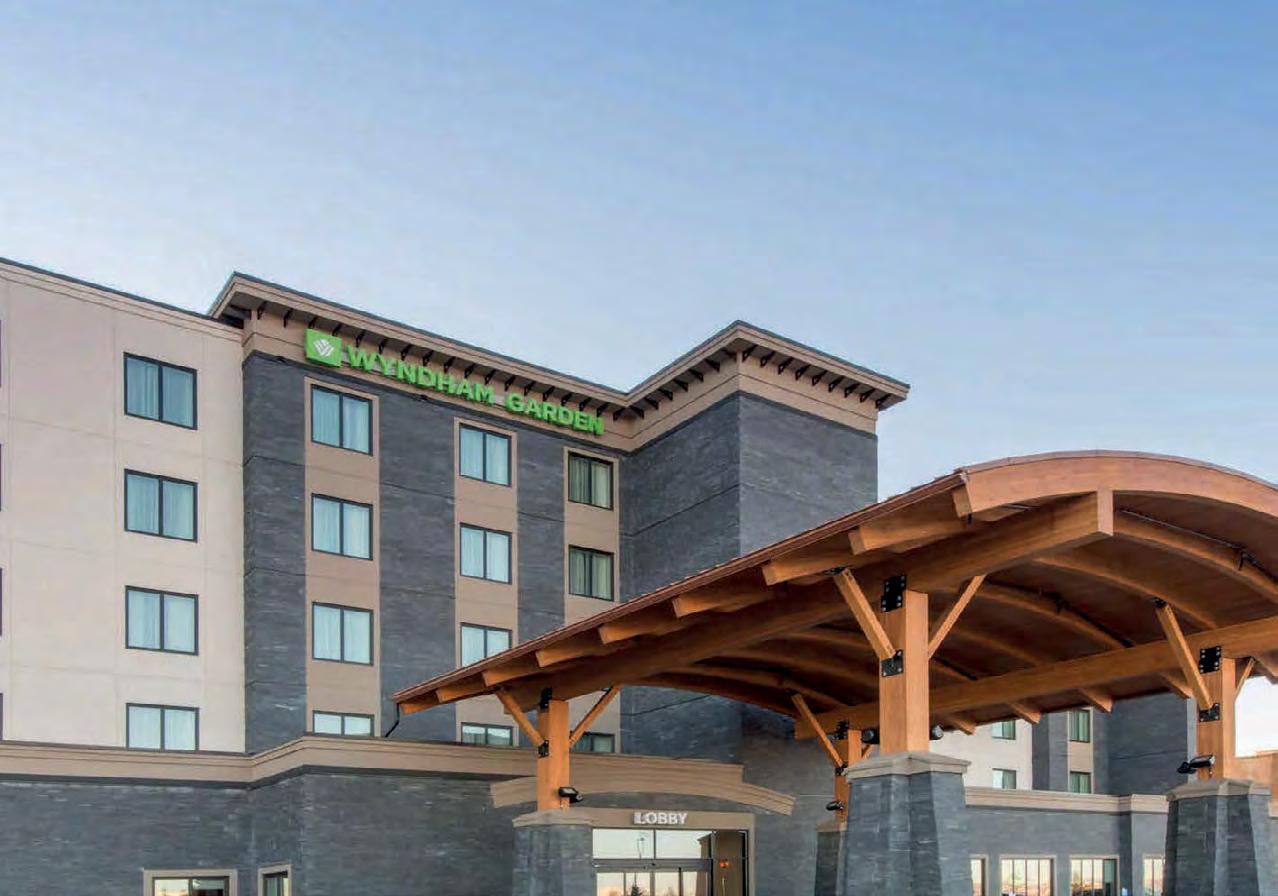
Hatch Hospitality, which has been in operation since 2007, has greatly evolved over the years and focuses on culinary consulting; lifestyle, luxury and tourism marketing communications; destination development and more. Bell will continue to work as Buy BC Chef Ambassador, Chef Ambassador for the BC Seafood Festival and in a brand new role — board member and co-chair of Sustainability for the Chefs Table Society.

Other projects on Bell’s immediate horizon include an exciting guest chef collaboration with Eataly, Toronto.



Hotel industry needs a strategic approach to address the labour crisis
BY GOPAL RAO, CONESTOGA COLLEGEThe slow-moving tsunami that was building over the years has finally hit our shores. It’s easy to draw quick, mostly anecdotal conclusions to what caused this to happen.
According to a report by StatsCan, Canada’s employment rate stands at 62.5 per cent, up from 62.3 per cent in 2019. In the same period, Canada welcomed a record 1.3 million new immigrants, boosting labour supply. The reality, therefore, is this: the labour supply has not shrunk but the demand for labour has increased.
Canada is a rare exception and a model for planned immigration in a world growing increasingly hostile to newcomers. All federal
governments, present and past, must be given credit for that. In other words, governments have (and continue to) do their part.
The challenge for the private sector, therefore, is to do its part by becoming more creative and resourceful.
The data seems to suggest that wages paid by the accommodations and foodservice sector are on par with those offered by the broader service sector.
According to the same StatsCan report, the average wage (for all service sectors) grew by 16.5 per cent bet-
ween 2018 and 2022. In comparison, the wages for the accommodations and foodservice sector grew by the exact same amount during that period.
While competitive wages are a very important consideration, it is only one of the many reasons why people choose careers. According to a study conducted by Indeed, Gen-Xers and millennials seek workplaces where they can apply their talents, while being compensated, in addition to flexibility, career development and a sense of purpose.
Here are some strategic
solutions and approaches to creatively addressing this chronic issue.



















Are all jobs in our sector essential? It’s time for the industry to take a decisive step towards automation in a purposeful way for front of house, back of house, and wherever it makes sense. Yes, there will be some teething troubles, expectation adjustments, but with time and thoughtful launch protocols, this will dissipate.
A senior executive at a

large hotel company recently lamented to me, “most of my guests are frequent flyers, perfectly okay with checking in online for their flight, yet when they show up at our hotels, they expect a smiling front-desk agent to check them in”. Let’s assume some short-term pain for clear and decisive long-term gain.
Each year, Canadian colleges and universities welcome thousands of international students, giving the industry a ready and willing pool of talent to tap into. Associations such as the Ontario Restaurant Hotel and Motel Association (ORHMA) are making concerted efforts to tap into this segment with the Ontario Hostelry Institute (OHI) re-launch, but more remains to be done.
If you are an employer looking for next-level talent, reach out to a college near you. They have what you need and would love to collaborate with you.
Working with post-secondary institutions that carry programs in Hospitality, Culinary Arts, Event Management & Tourism can take many forms, such as:
• Offer your services as a guest speaker.
• If the college has one or more capstone courses, offer your company as a project. A capstone course allows college students to demonstrate expertise in their area of study, typically involving a project such as a final paper, a portfolio, performance, or investigation /research.
For example, students in a hospitalitymanagement program may elect to do a research project on reducing the carbon footprint of a restaurant.
• Offer scholarships/ bursaries.
• Offer internship opportunities.
• Participate in the college’s job fair and placement activities.
• Ask to see if you can join the college’s PAC (Program Advisory Committee)
Find a college/program that offers programs in hospitality-related disciplines that you can work with, look for the main contact as advertised on their website.
Often, this will be your first and best start.
Hiring a good candidate must be a two-way street. Certainly, as employers you want the best talent, but what about the prospective employee you are looking to hire? What’s in it for them? Why should they choose to work for you?
Create job ads that are exciting, inviting, and meaningful to the candidate. After all, ads are a marketing tool, designed to find and capture the best talent, much like your ad campaign that is designed to capture
the best customers. Speak about your values, your work culture, your internalgrowth policies, and your passion for finding the best team players to enhance your product or service offering. Candidates today are looking for more than just a job or a paycheque, they want to be part of an organization and team that will allow them to grow.
As competition for talent continues to grow, you will need to look beyond traditional workplaces and compensation packages to attract, recruit, and retain talent. Visionary leaders recognize that concerted efforts are needed to help address the unprecedented labour shortages in Canada. By embracing and promoting forward thinking workplace cultures and increasing dialogue with employees, the benefits from flexible, motivated, and highly skilled workers is assured.
Canada’s hotels are well capitalized and extremely professionally managed, and they have the resources and ability to bring creative solutions to this problem. The future of our industry is bright. ◆
Ascend Hotel Collection® is a membership of more than 370+ upscale, independent hotels open or under development worldwide, that benefit from increased exposure, reservation potential, technology, loyalty, and support from innovative global lodging leader, Choice Hotels®. Ascend members remain unique and distinct, able to operate and design on their own terms to prioritize the needs of their guests.
Explore opportunities to stay local and go global.
ChoiceHotelsDevelopment.ca

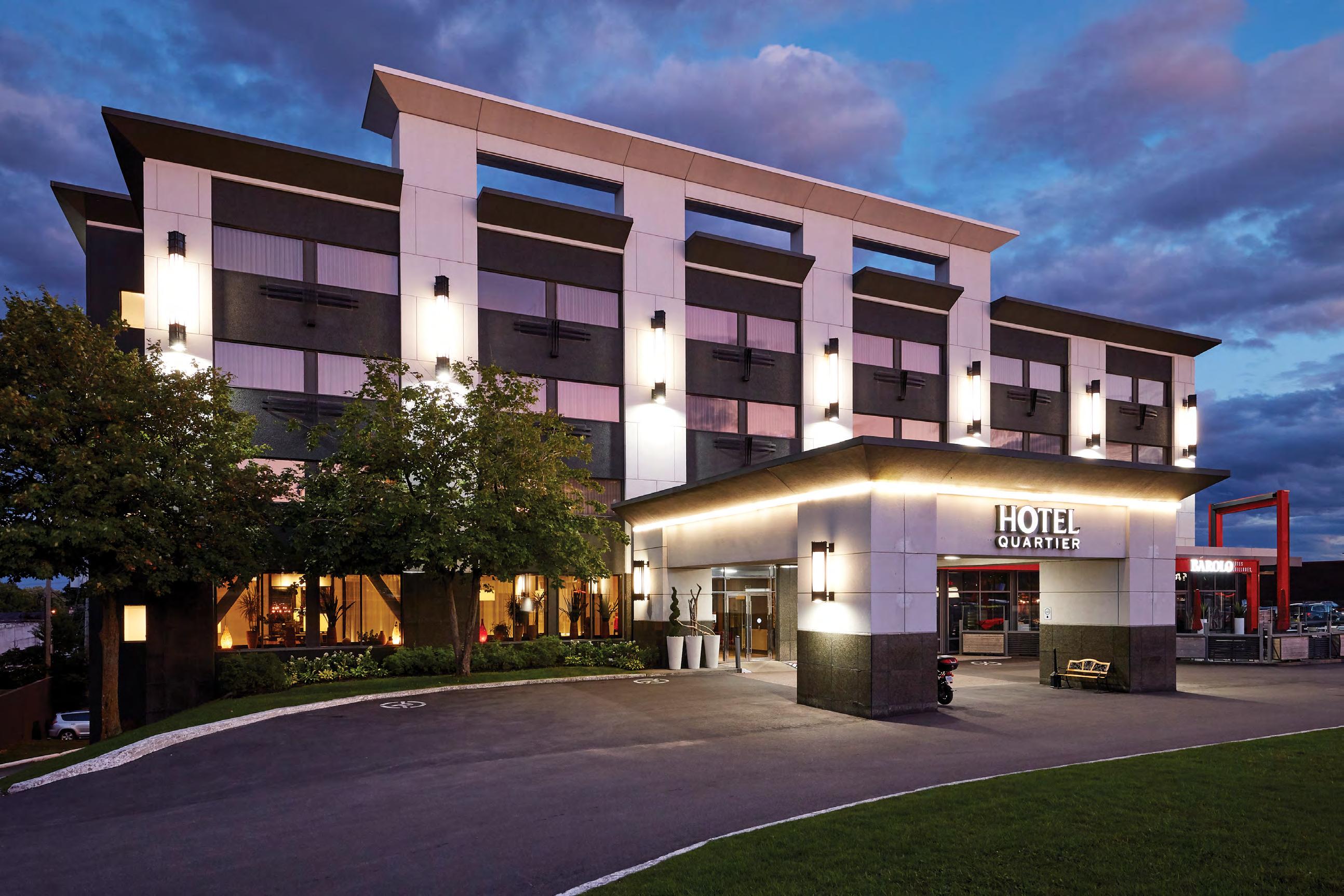
For more information on how we can help, scan the QR code:



 Hôtel Quartier Québec, QC
Hôtel Quartier Québec, QC

Sonesta has created a fresh, new brand focusing on what guests and owners are really looking for…the essentials.

Sonesta Essential delivers simplicity at its core and makes developing and opening hotels easier with reasonable brand standards, limited food and beverage requirements, and simplified conversion processes. Carefully designed by owners who know what it means to own, invest in and operate powerful brands that enable you to stand out from the competition and grow.
8 LARGEST
1,200+ locations 100,000 rooms

17 brands
8 countries hotel company in the US
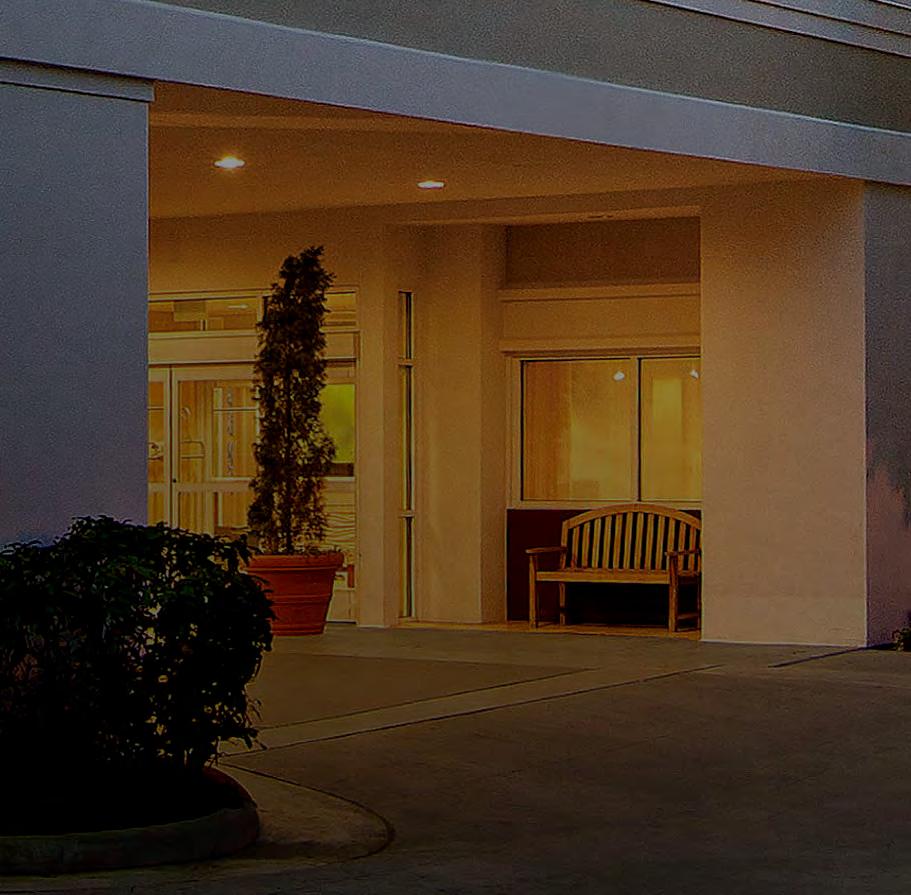



Sonesta Essential. Destined to become the brand in an exciting, timely and relevant category.

DISCOVER FRANCHISE.SONESTA.COM



 BY FRASER MACDONALD, COLLIERS HOTELS
BY FRASER MACDONALD, COLLIERS HOTELS
Overall, the Canadian hotel-investment market performed well in 2022, and the appetite for lodging investment remains high despite challenges with increasing interest rates and some economic uncertainty. A range of product is expected to become available for sale in 2023 for a number of reasons, including portfolio reviews/

rationalization, debt maturities, and overdue PIPs (Property Improvement Plans). Investors who are able to identify emerging trends and capitalize on opportunities in the market will be well-positioned for success as we move through this cycle. Below are some excerpts from the recently launched 2023 Canadian Hotel Investment Report. A faster-than-expected operating recovery and investor optimism
supported overall healthy hotel investment volume of $1.6 billion in 2022. National volume paced roughly 20 per cent below 2021, however, the decline was driven by a deceleration of alternate-use sales from pandemic highs with acquisitions for hotel use firmly back in demand, accounting for 80 per cent ($1.2 billion) of the year’s total. When evaluating acquisitions for ongoing hotel use, investment volume was up roughly 10 per cent year-over-year.
Last year saw participation from a well-balanced buyer pool with stronger in-place cash flow and a clearer outlook on future performance narrowing the bid-ask gap between buyers and sellers that has been an impediment to traditional transactions during the pandemic. Private capital sources drove the majority of investment activity with the pursuit of yield and appeal of smaller equity requirements in the wake of current financing conditions, pushing investors towards secondary and tertiary market investment opportunities, which accounted for the bulk of the year’s transactions.
Year-end volume reached $1.6 billion in 2022, down approximately 20 per cent year-over-year. However, acquisitions for ongoing hotel use trended 10 per cent above 2021 levels to $1.2 billion.
Reflecting the slowdown of alternate-use transactions and concentration of smaller deals, Average Price Per Room (APR) metrics, including all types of lodging transactions, was $131,200 in 2022 compared with $158,100 last year. Excluding alternate-use deals, APR metrics remained healthy at $120,000.






Hotel operating fundamentals recovered years ahead of expectations in 2022, with national RevPAR ending the year 3.5-per-cent ahead of 2019 results, according to STR. Despite concerns of a recession, we anticipate positive momentum for lodging demand across the leisure, corporate, and group segments.
Hotel-transaction activity related to alternate uses comprised just 20 per cent of overall activity in 2022, compared with 41 per cent in 2021 and 53 per cent in 2020. We expect these transactions will continue descending towards historically low norms.
Trades under $10 million continued to attract investors looking to place capital with a smaller cheque size and accounted for almost 75 per cent of deals during the year.
Distressed sales remained at historic lows in 2022, representing just one per cent of sales volume over a handful of trades.

Canada’s largest urban markets (+1M populations) saw more than 30 hotels transact for some $625 million (40 per cent of total) with almost 75 per cent of volume related to acquisitions for continued hotel use.


Private investors and hotel investment companies continued to be the largest buyers of hotel assets, investing more than $1 billion during the year (65 per cent of total).
Full-service transaction volume increased more than 30 per cent year-overyear, elevated from the sale of a handful of hotels in major urban and resort markets.
Limited-service assets continued to comprise a steady component of the market, although declining from the close to $1 billion of volume seen in 2021, which was elevated from the sale of many assets in major markets for conversion to social housing.
Despite strong investor interest, focused-service acquisition opportunities have been limited in recent years; however, given the current lifecycle of many assets in this segment and upcoming capital requirements, we expect to see increased trading of this product in the medium term.
❱❱
Catch-up capital post-pandemic will continue to propel the market this year as equity remains plentiful, with anticipated transaction volume of $1.5 to $2 billion.
❱❱
The transaction market will be primarily led by strong activity in secondary and tertiary markets with deals under $20 million. There is also potential for several headliner city-centre hotels and resorts to transact.
❱❱
It’s unlikely we’ll be going back to record low interest rates of yesteryear, requiring creativity in deal structuring.
❱❱
Portfolio reviews, loan maturities, and overdue PIPs will prompt owners to bring assets to market.
❱❱

Increased focus from developers on building lifestyle and extended-stay product, given gaps in the market on that product type with strong demand and return potential.
CLIENT STATEMENT: “Built both hotels on time and on budget. This was an incredible feat considering the builds were during the worst global pandemic in many years.”
Moxy Hotels, Marriott International’s newest and edgiest select-service brand is making its way to Canada.
“Moxy is a very unconventional brand,” says Aaron Laurie, VP Lodging Development for Eastern Canada, Marriott International.

The Moxy brand stands out because it targets younger travellers and the young at heart, he adds. “Our guests are searching for unique accommodation experiences. Moxy is unlike anything out there. It is truly a one-of-a-kind concept in Canada and around the world.”
This year, we will see the official openings of the Moxy Halifax, which is part of a mixed-use, new-build project, and Moxy Banff, a conversion project. An additional two Moxy hotels will be opening in Montreal (216 rooms) and Ottawa (222 rooms), which will also be part of key mixed-use-development projects. It’s all part of Marriott’s long-term plans to reach every major urban market in Canada.
“This is an exciting moment for Marriott Hotels in Canada. The growth of the Moxy brand across the country exemplifies both developer interest and also guest demand for unique lifestyle concepts and experiences,” says Duncan Chiu, senior director, Lodging Development - Western Canada, Marriott International. “Moxy hotels is a vibrant and playful brand with an efficient development and operating model, suited for standalone purposebuilt hotels, conversions, and mixed-use projects”.
Halifax and Banff are the perfect starting points for the Moxy brand in Canada, says Laurie. “Both locations have a very strong pool of transient and leisure guests and are situated within a vibrant food, beverage, and entertainment environment. Both cities’ hotel supply is majority represented by classic hotel brands. Moxy will fill a market need by providing a distinctive hotel brand experience unlike any other.”
Moxy fills a gap in Halifax’s hospitality space says Moxy Halifax
owner Joe Metlege. “It offers a modern and energizing vibe where people can gather for business meetings, spontaneously meet up with friends after work or create the ultimate staycation.”

Moxy hotels was a natural fit for Moxy Banff’s conversion project because of the brand’s vibrant, lifestyle experience-driven product, says owner Brooke Christianson. “We are so excited to be introducing Western Canada’s first Moxy hotel in the world-renowned Banff National Park. We are confident that this hotel will provide an exceptional and unique experience for all travellers coming to Banff”


The distinctive brand is all about social spaces and activations. A signature design element is the public zones, where communal spaces allow guests to check in, work, play, or socialize in a comfortable and vibrant interactive setting.
Bar Moxy is an essential feature of the hotel lobby design, serving as a hub of activity for guests throughout the day and night. A natural meeting point for guests, the tech-enabled space provides an ideal central location where all essential services of the hotel are focused, including deskless check-in, 24/7 self-service grab and go offerings, all-day retail, a DIY station, a game room, The Welcome living-room space, the Lounge, and the Library/Plug In peace-and-quiet zone.
Other public spaces include a full circuit fitness centre and fun zone complete with gymnastic equipment, a boxing bag, and stretch areas. Scalable meeting space options are also available on demand.
The minimalistic style guestrooms at 180 to 260 sq. ft., provide exceptional value to owners working with tighter, limited-density sites, says Laurie.
While the rooms may be small, the well-appointed design offers guests the perfect balance of efficiency and comfort. Design elements include a peg storage wall, platform bed with storage, signature door with a glass panel, flexible furniture, a fun chair, and fold-down desk, a 55-inch LED TV with screen casting, free Wi-Fi and multiple USB plugs, a bathroom window, and a spacious shower.
Laurie notes that franchises are being incredibly creative with
incorporating elements of the local communities into their design components. “Everyone is working with brand agencies and design firms to help bring localized nodes to life in the interior design.”
Maximizing the utility of space and revenue per square foot within hotels comes at a time when construction and land costs are at an all-time high, he adds. The Moxy brand offers a favourable cost-to-build model that attracts experience focussed guests. It is also supported by a lean staffing model that translates into improved project economics.
Currently there are 28 Moxy locations in the U.S., with 34 more to come and 122 globally with an additional 125 in the pipeline.
Each Marriott branded hotel is supported by a powerful global distribution platform and innovative sales-and-marketing programming focused on delivering high-value guests, including Marriott Bonvoy®, the industry’s largest hotel loyalty program. The Power of Marriott also helps operators drive efficiencies through the use of state of art technology, global negotiating power, shared services, and the most experienced teams in the industry.
With its vibrant public spaces, chic design, and efficiently spaced guestrooms, Moxy will be a standout in Canada, says Laurie. With Moxy, Marriott is shaking up the traditional hotel model to attract a new generation of travellers. “We’re very much looking forward to seeing the Moxy brand attract the ‘Fun Hunter’ travellers from across Canada and internationally.”
Anew era of globalized tourism is coming. And, while the current economic headwinds may delay the return to pre-pandemic levels of tourism growth, there is little doubt we’ll get there, and that this growth will once again shape hotel investment.

“Prior to COVID, tourism was the fastest-growing industry in the world. We saw places — interesting, exotic, unique places, well off-the-beaten track, that no one would have considered visiting 20 and 30 years ago — open up to ordinary travellers, not just those that are seeking exotic destinations,” shares Greg Klassen, partner, Twenty31 Consulting, a Vancouver-based tourism consultancy focused on the development of innovative destination strategies.
“There’s no question, globalization has increased travel enormously, both from a corporate perspective, as well as a leisure perspective,” says Monique Rosszell, senior managing partner, Montreal and Toronto at HVS. “From an operational standpoint, globalization has pushed hotel demand.”
And, from an investment standpoint, she adds, there are a number of global economic factors that influence outside investment in Canada, as well as Canadians investing abroad. Among these key considerations are interest rates, currency differentials and a range of political factors.
As Alam Pirani, executive managing director, Canada & Caribbean at Colliers Hotels notes, “Travel is up, businesses is increasing and, in terms of 2022, [in] certain markets we’ve seen numbers that have exceeded the 2018 and 2019 peak years.” This has resulted in investors gaining increasing confidence in the hotel sector.
“Given the high interest rates and the high recessionary environment that we’re going through, the hospitality-lodging asset class is actually one asset class we’ve continued to see significant interest in from investors,” Pirani elaborates. And it’s the ability to adjust pricing models in real time that stands out as a key factor in this maintained appeal, he explains. However, lenders are more wary of hotel investment than in the past. “From a lender’s perspective, there’s more risk because nobody ever anticipated what COVID could do to hotels, in terms of cash flows,” explains Rosszell. However, she believes this outlook is shifting.
“Transient demand and meeting/group convention demand [are] really coming back and, if hotels are able to prove for another year that they have very healthy cash flows, that will give greater comfort to lenders, such that lending becomes easier going forward.”
In fact, the whole tourism industry has been forced to re-assess its ability to weather storms. The rapidly growing globalized tourism market had given rise to

focused and highly specialized offerings. But, in this time of tourism recovery,
In this brand-heavy environment, independent properties “that are trying to compete against some of those other big, globalized brands are probably going to have a challenge,” notes Klassen. “[They’ll] have to pick a lane: invest a great deal into their local brand or position [themselves] against a slightly lower price point.”
Additionally, in the current labour market, the clout of these larger brands brings an additional advantage. “The same [brand equity] that draws visitors to those particular brands also draws employees,” Klassen explains.
“Higher yield, higher-end boutique-style brands” are capable of standing out from the pack and attracting travellers who don’t want “a globalized, commoditized kind of hotel experience…but they have to work very, very hard at retaining those positions,” Klassen explains.
diversification and
risk factors have become key focuses for investors and operators.
Because of the pandemic, hotels and destinations have recognized the risk of business models reliant on specific categories of travellers. “Recent years have highlighted the risks associated with heavy and near-exclusive reliance on international travel markets,” Rosszell offers as a prime example.
“To mitigate your risk in a hotel, [the key] is to expand the diversity of your demand generators,” she explains. “So, you don’t want to be completely reliant on one feeder market, [such as] the Chinese or the European feeder market.”
It’s also not ideal to be reliant on a particular category of travel, such as conventions, she adds, especially given the long lead times and slow recovery of the convention market.
As Klassen notes, not only is globalization occurring within the tourism industry, but hotel and tourism companies are becoming increasingly globalized.
“Marriott/Starwood, Accor and other major chains are almost becoming more like hotel holding companies and have multiple branded properties in every major tourism region around the world,” he says, highlighting the growing dominance of international hotel companies with multiple brands.
The objective, Klassen observes, is “following the customer [and] making sure there’s a hotel at every price point so that you can graduate your customers up the line within the [brand] family.”
And, as these large parent companies continue to extend their reach and influence, it becomes increasingly attractive to join them rather than compete with them.
“Cost and customer wise, you have pressures from both ends that make [being part of these brand families appealing], and then you get the premium price, because [it’s rare that] those brands are cheaper than the local brands,” Klassen adds.
Looking ahead, the re-emergence of international travel and investment activity will shape the Canadian hotel landscape.
Assuming global tourism demand returns to a state of growth, “we will see increases in our supply pipeline,” says Rosszell. And this activity will provide the market with an infusion of new, higher-quality product.
“On average, Canadian hotel supply is quite old…So as we renew that supply it helps to increase average rates,” Rosszell explains. “The vast majority of new supply is also branded,” she notes, and these tend to command higher rates — once again driving an increase in average rates.
And, on the foreign-investor front, Pirani highlights a bright spot: “In the current economic environment, diversification is key, and Canada is often viewed as a kind of safe haven for investment.”
Rosszell also notes that Canadian hotels have a competitive advantage as international travel resumes. “Canadian hotels see a huge opportunity in terms of the international demand because Canadian hotel rates are well below international levels. And, as this international demand returns, they are benefiting hugely,” she explains.
Twenty31’s 2023 report, Top 12 Trends Shaping the Future of Travel and Destinations also points out that the strength of the U.S. dollar is influencing the affordability of travel. The high-value of the USD makes international travel more attainable for U.S. travellers, but also makes travel to the U.S. more expensive for the international market. As a result: “Competitor destinations to the U.S., with cheaper currencies, may be more attractive.”
“The price of trips is becoming very expensive, especially in the next couple of years,” notes Klassen, which makes it difficult to predict when the industry will reach or surpass its former levels of growth.
However, there is a general sense of confidence in the future of the global travel industry. “People are born nomads, so we like to travel,” Rosszell notes. “[And] the hotel industry is incredibly resilient.”
the balancing of
People are born nomads, so we like to travel. [And] the hotel industry is incredibly resilient
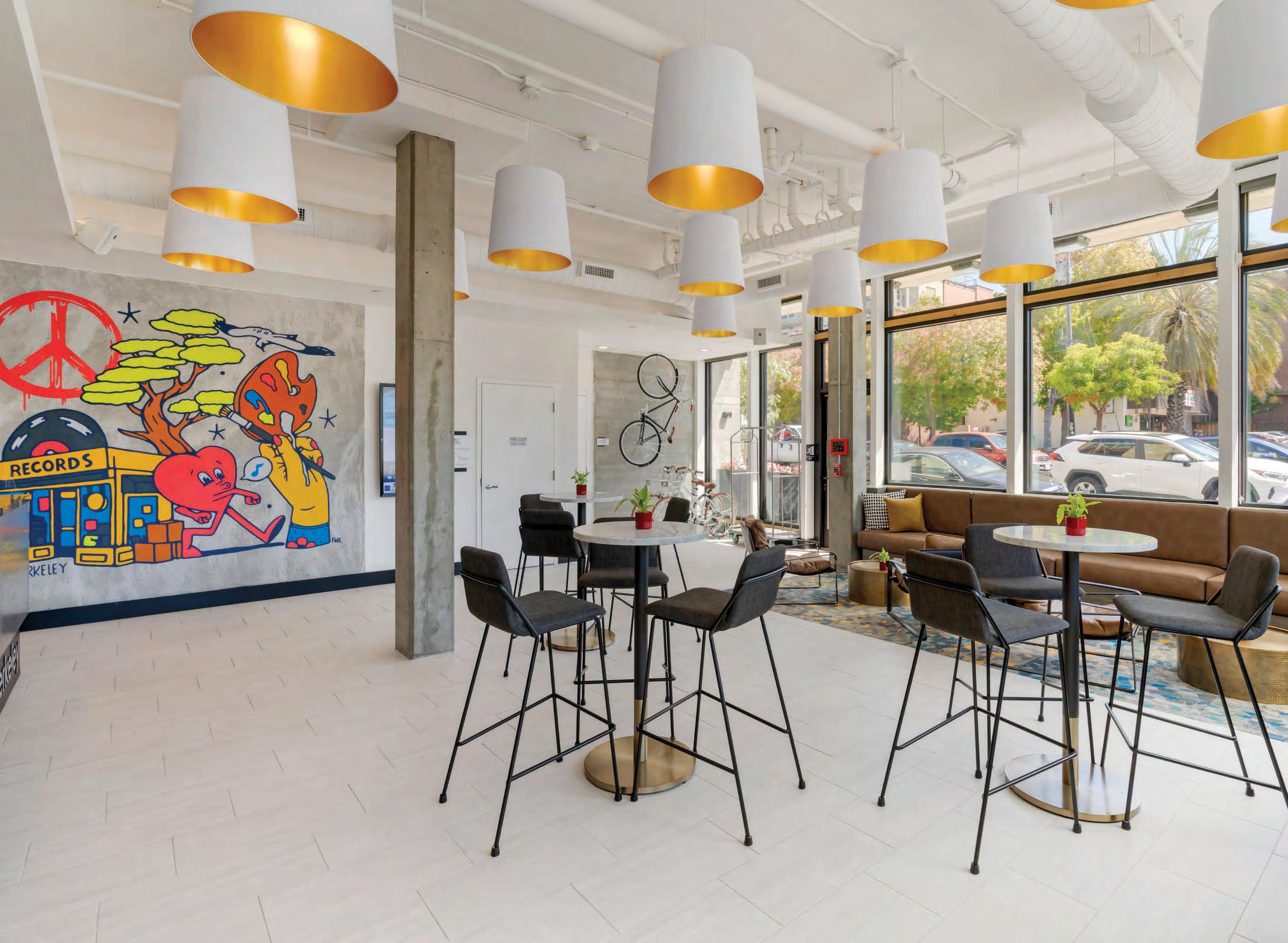







With inflation, rising interest rates, supply-chain challenges, and the fallout from the pandemic, it would be natural to assume that the risk landscape has deterred investors. But experts are saying there is every indication that the risk factors that slowed down investment in 2020/2021 are no longer an issue.
“Hotels are still a sought-after asset class given yields, availability of financing — despite higher interest rates — and a clearer outlook on future performance,” says Robin McLuskie, managing director, Hotels, for Colliers in Toronto.
Overall investment in the hotel market has been quite strong, despite what happened through COVID, says Sylvia Occhiuzzi, senior vice-president and principal, Beechwood Real Estate Advisors in Toronto. “Ownership groups
in Canada have shown great resilience. They are a well-capitalized group and have managed to withstand a lot of ups and downs in what is very much a cyclical market.”
Historically the hotel market has been riskier than other classes of commercial real estate, including retail, she adds. “Other classes have the benefit of long-term leases. Hotels are unique in real-estate ownership in that ‘inventory’ is old on a day-to-day basis, so the stability of cash flow is different from other commercial assets.”
It was a different picture throughout 2021, where transaction volume was impacted by the dramatic drop in demand and revenue. “Owners sat on the sidelines and focused on liquidity preservation, cost reductions as well as pivoting to target new sources of the limited demand in the market,” explains McLuskie.
“COVID had some effect, especially
if we look at hotel sales in 2020 and into early 2022,” says Peter J. Gaudet vice-president, Horwath HTL Consultants Montreal. “Distressed sales tended to be related to COVID and the location. For example, hotel sales in Western Canada outside of B,C.”
Given so much uncertainty in the market at the time, hotel values were very difficult to measure, and the bid/ask gap was too wide, which led to limited market transactions, explains McLuskie. “However, generally speaking, values held and once transactions started taking place, we didn’t see much discounting on pre-pandemic pricing, if any.”
What stood out for Occhiuzzi was the fortitude of owner/operators in not discounting rates. “In other downturns that was typically the theme. It helped to highlight to investors the advantage of hotel ownership, especially in an inflationary environment.”
On the plus side, the recovery from
COVID has been faster than expected, leading to strong investor optimism and an overall healthy hotel-investment market in 2022, says McLuskie. “When evaluating acquisitions for ongoing hotel use, investment volume was up roughly 10 per cent year-over-year in 2022.”
For years, investors have been operating in historically low interest and lending rate environments, notes Occhiuzzi. “Yes, that has had an impact on the amount of cash flow available to service debt, but on a relative basis, we’re not seeing double-digit interest rates. Investment is no riskier than it was 10 years ago.”
The pandemic provided an additional advantage in the eyes of investors, as it forced operators to cut back on expenses and do more or the same with less in order to increase their profitability and bottom line. “Now they are in an environment where they are able to increase their rates as the market
continues to show improvement,” says Occhiuzzi. “Average Daily Rates (ADR) continue to pace well and will continue to grow ahead of expenses. That’s a good sign and places hotels in the position of being a good hedge for inflation and on the radar of investment groups.”
Urban assets in major markets such as Toronto, Vancouver, Montreal and Ottawa, are still highly sought after given their size and profile, notes McLuskie. “However, extended stay as well as limited/select-service assets in secondary and even tertiary markets across the country proved to be the most resilient during the pandemic so we are seeing stronger demand to diversify portfolios in stable, higher yielding markets in assets that don’t have large convention business. Overall, we are seeing a big push for extended stay and lifestyle hotels.”
The most attractive properties for investors depend on how they want to grow their portfolio, says Occhiuzzi.
“Limited and selected service in the secondary and tertiary markets showed remarkable strength through the pandemic, because the market relied on regional travel when air travel was restricted and borders closed. But resort and leisure markets also came into view for investors.”
There was a lift in the quality of the resort market providing strong opportunities to increase room rates, she explains. “That came about with the rise in domestic travel and people taking the work-anywhere philosophy. They began to spend time in markets that were once only considered traditional vacation destinations. This flattening of the seasonality typically experienced in reports has given time for investors to look at this segment.”
Major urban markets continue to be strategic for buyers despite the impact of COVID, says Occhiuzzi. “These are global gateway cities with strong barriers to entry. For buyers that can afford to buy, these are still very much a strategic target.”
There continue to be flags that investors are keeping a close eye on, including higher interest rates, inflation, escalating construction costs for new construction and renovation projects, and concerns over operating performance once the pent-up demand that has been driving growth stabilizes, notes McLuskie. “High construction costs are keeping new-construction levels low, providing a heathy demand-andsupply balance.”
Gaudet believes the current concerns regarding interest rates and inflation might have a shorter to mid-term effect on hotel investing than COVID. “Some projects are being postponed or cancelled given the higher interest rates. Meanwhile, buyers looking for upswing potential in their investment can use inflation to improve ADR. The reserve is that inflation is increasing operating costs.”
Despite these factors, owners are generally optimistic on performance this year with many operators beating January and February budgets on top and bottom line, observes McLuskie. “Despite interest rate increases, the positive news is lenders are still actively looking at the hotel space with the right sponsors.” ◆
Create unforgettable coffee moments for your guests and employees. Exceptional taste is a single touch away.


After a period of devastating impacts, hotel REITs experienced steady improvement in 2022, augmented by resilient leisure travellers. While hotel performance remains strong, macroeconomic and geo-political headwinds are expected to remain challenging. As a result, hotel REITs are taking a conservative approach as they re-gain their appetites for investment in 2023 and beyond.
BY NICOLE DI TOMASSOto weather a recession.”
Obviously, the COVID19 pandemic caused an unprecedented level of disruption to the hotel sector and corresponding REIT share prices in 2020 and 2021. However, with the development of vaccines, rigorous cleaning protocols, technology adoption and experience-starved consumers, hotel REITs operating performance began to recover.
“The threat of a recession has prompted companies to be a little more conservative,” says Deborah Friedland, managing director and head of the Hospitality Advisory Practice at New York-based Eisner Advisory Group LLC. “Although the industry continues to face multiple headwinds, it continues to benefit from a strong recovery following the pandemic. Many well-known REITs have conserved cash and are well-prepared
“Generally speaking, hotel REITs are riskier than other asset classes, which have long-term leases, predictable monthly payments and lower operating and maintenance costs,” says Friedland. “There are many different factors that affect hotel REITs more quickly and deeply than other asset classes. As interest rates go up, the cost of capital goes up, and there’s more competition for the yield.”
“Most REITs lost roughly 50 per cent of their value at the onset of the pandemic, but values have recovered somewhat
– but nowhere near the levels achieved several years ago,” says Alan Tantleff, senior managing director, leader of Hospitality, Gaming & Leisure, Washington, D.C.-based FTI Consulting. “High interest rates and the prospects for a slowing economy seem to be holding them back.”
Traditionally, hotel REITs have focused on growing assets primarily in major urban markets, but the COVID-19 pandemic prompted a new strategy. Now, more REITs are focused on branching out geographically and re-allocating assets from urban markets to leisure destinations. While business travel has shown signs of recovery, a return to pre-pandemic levels remains far off.

Vancouver-based American Hotel Income Properties REIT LP (AHIP) has been evaluating growth opportunities that would expand the hotel portfolio and geographic footprint. The company has also been reviewing strategies for divesting assets to recycle proceeds into higher-return assets in more attractive markets.
In January and June 2022, AHIP completed the strategic dispositions of two hotel properties in Florida and Pennsylvania for gross proceeds of $10.3 million and $5.7 million respectively. In Q4 2022, AHIP also completed the disposition of five non-core hotel properties, one in Pennsylvania and four in Oklahoma, for gross proceeds of $5.3 million and $26.3 million respectively. Collectively, these dispositions allowed AHIP to avoid future PIP (price interest point) investments that would not have met returns available elsewhere in the portfolio; increased portfolio RevPAR by approximately $3; and improved its debt to EBITDA ratio by approximately 0.4x. Additionally, the Oklahoma portfolio sale resulted in the return of $3.2 million of restricted cash. Overall, AHIP’s revenue increased 16.6 per cent to $281.4 million for the year ended December 31, 2022, compared to $241.3 million in 2021, and RevPAR reached 100 per cent of
its 2019 level.
“We continued to achieve strong revenue performance from our select-service hotel portfolio in Q4,” said Jonathan Korol, CEO, American Hotel Income Properties REIT LP in a press release about the company’s 2022 financial results. “Despite macroeconomic challenges, we have not seen any weakness in corporate, group or leisure demand channels. Consistent with prior periods of high inflation, we are experiencing rate growth that exceeds inflation with an annual increase in Average Daily Rate (ADR) of 12.7 per cent. However, broad cost pressures remain, particularly in labour, which continues to put pressure on operating margins.”
Korol continued, ““The last three quarters of 2022 were negatively impacted by inflation, labour shortages and supplychain disruptions. To address these issues, we are continuing to focus on hiring more in-house labour, reducing turnover and improving housekeeping productivity. Top line results for January 2023 suggest continued strong revenue performance with occupancy of 57 per cent, ADR of $123 and RevPAR of $70, which is 113 per cent of January 2022 RevPAR on the same property basis. While we are making some progress on managing operating expenses, cost pressure and labour issues are expected to remain a challenge for most of 2023. We made steady progress on our leverage reduction goals over the last two years, achieving a decrease in each year and a two-year reduction in leverage by 570 basis point to 52.6 per cent as measured by debt to gross book value. Our financial position allows us to be patient, with no debt maturities until late 2023 and 92.8 per cent fixed rate debt.”
“Throughout the pandemic and possibly into the future, it seems that hotel REITS believe resorts have better prospects,” says Tantleff. “[Additionally,] some REITs have been buying back their stock lately instead of buying hotels, arguing they’re trading at a discount to net asset value. Rather than putting cash to work buying new hotels, they see better prospects purchasing their discounted shares.”
While the depth of the pandemic’s impact on travel was like nothing the industry has experienced in modern times, it has given hotel REITs and operators a better idea of what to expect and how to respond in times of crisis moving forward.
“Hotel operators have been forced to embrace new operating and management techniques, and those that have survived the worst of the pandemic are strong and have learned how to manage through extreme distress,” says Friedland. “I’m optimistic about the future. ”◆

Momento is always at the ready to serve up quality coffee offerings.
Sustainability has also become an integral part of delivering the guest experience for hotel operators. A Certified B Corp™ company, Nespresso’s commitment to sustainability is reflected through every step of the value chain, from where the coffee is sourced and its impact on communities, to the composting of coffee grounds and capsule recycling, to climate change prevention actions.
Its first-of-a-kind in Canada recycling process starts with separating the coffee grounds for composting and the aluminum capsules for re-purposing. Nespresso works closely with service providers, conducting monthly audits to ensure that capsules collected are recycled to meet the highest sustainability standards.
Hotel operators know that a large part of guest satisfaction can ride on the quality of the coffee experience. Self-service options inside, but also outside, of the guestroom can be an important part of that experience, whether in public areas, food-and-beverage services, or conferences and events.
Nespresso Professional Solutions has taken coffee service a step above the rest with Nespresso Momento, its new line of professional coffee machines that allows operators of any size to satisfy the needs of guests from the breakfast counters to the lobbies to the boardroom.


With three models to choose from – a single head for lower-volume applications (Nespresso Momento 100), a dual head for greater efficiency in higher-traffic areas (Nespresso Momento 200), or an integrated milk machine (Nespresso Momento 120), hoteliers have plenty of choices for delivering high-quality and versatile coffee options for guests.
Guests can select and brew a fresh cup of coffee with a single touch – making it the perfect addition to a lobby area for roundthe-clock fresh coffee service, self-serve breakfast areas, conference rooms for a steady
supply throughout the day, or high-traffic buffet events. Users simply select a capsule of their choice and Nespresso Momento will automatically recommend the perfect recipe and dispense the exact size and coffee style to meet to their specifications.
But guests are not the only ones to benefit from the experience. Nespresso Momento not only delivers on quality, but the units are easy to manage and maintain. The automatic self-rinsing function means less time spent cleaning and maintaining, allowing hotel staff to spend their time on more value-added tasks. So, unlike conventional coffeebrew and carafe systems that need to be constantly re-filled and serviced, Nespresso
Therefore, in addition to serving fresh, quality coffee, hoteliers can rest assured that they are delivering that elevated coffee experience with a strong sustainability message behind it that their guests will appreciate.

the world approaches the one-year mark of when the hospitality market re-opened, it’s encouraging to see how quickly Canadian operating metrics have bounced back to 2019 levels.
Given the pace of recovery and overall strength of the industry, the good news is that a majority of lenders including Canadian, European and American banks, as well as Credit Unions, trust companies and Mortgage Investment Corporations (MICs) are now back in the market, offering much-needed liquidity. This is particularly helpful in facilitating new acquisitions, re-financing, and the long-overdue Property Improvement Plans (PIPs) that were postponed during the pandemic. Additionally, the demand for new construction is thriving and there is liquidity for that side of the sector provided that take-out financing, based on stabilized NOI assumptions, and the valuation is equal to or greater than the cost. There’s no question demand exists for new product in certain markets across the country, and as construction costs start to come down and valuations remain strong, we will see new product being built.
One of the key factors that drive credit decisions for lenders are valuations. Historically, the approach for valuations for hotels was a combination of an Income Approach analysis and a Direct Comparison approach based on recent trades. However, due to the lack of comparable trades over the last few years, the Direct Comparison approach can be more challenging to apply. Currently, with the improving performance of hotels, lenders are increasingly turning towards utilizing the Discounted Cash Flow (DCF) method, which considers the long-term
ASperformance of the property. Based on the current outlook for the industry, higher values per key are being seen today in some areas compared to 2019 given stronger ADRs and optimistic views on the continued recovery of demand.
Another important aspect for lenders is the debt service coverage ratio (DSCR). This ratio measures the hotel’s ability to cover its debt obligations, and lenders are focused on projections and ensuring that the DSCR meets their requirements, especially in this high-interest rate environment. In fact, interest rates between institutions can vary depending on their source of capital, and lenders are offering rates in the range of six to nine per cent for three to five-year fixed rates.
Capitalization rates, which have a co-relation with interest rates, are another aspect that lenders consider when valuing hotels. However, cap rates factor in other variables such as the geographic area, urban versus secondary/tertiary, quality of the asset, and whether the hotel performance. Despite the strong gains in performance, the challenge with focusing only on current “going in” cap rates is that current income levels being capitalized are still below what would be considered “stabilized” levels. Investment surveys typically quote rates applicable to stabilized levels, therefore cap rates should be applied
to the “stabilization” year. It has been encouraging to see, given 2022 performance of hotels improved due to the strength of the market, that lenders can analyze the trailing 12 months and assess whether it is stabilized depending on the life cycle of the asset and other factors mentioned above.

Reported below are stabilized cap rate ranges by Colliers. Despite current financing costs, investor interest remains strong, which despite higher interest rates and softer economic outlook, has put competitive pressure on capitalization rates for quality assets that come to market. The hospitality sector is amongst the few sectors where inflation hedge returns are still available as ADR growth is above inflation (see chart below).
While real-estate capital looks for yield, the accommodation sector in Canada provides a source for higher risk adjusted returns than other asset classes. That said, lenders recognize the volatility of the hospitality sector and therefore require a greater level of due diligence prior to issuing funding commitments.
In conclusion, lenders are now back in the game, providing much-needed liquidity to the hospitality industry. They are focusing on valuations, DSCR, STR reports, ADR rates, cap rates and interest rates to determine the best course of action. The industry is bouncing back, and with the right support from lenders and stakeholders, it has the potential to thrive once again. ◆



















































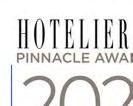


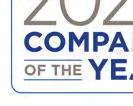
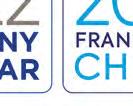






























































➔ Hotel insurance is all about assessing risk –something that has become even trickier within a more volatile climate crisis. In fact, a 2020 study conducted by Deloitte showed that insurance-loss ratios in Canada grew faster than premiums due to catastrophic weather events. Throw in a global pandemic and estimating risk gets even more complicated.
But, as the hospitality industry continues its recovery to almost pre-COVID rates, insurers
are anticipating continued growth and economic stability. “During the pandemic, hotel buyers and insurers would just look at how an operation was doing in 2019 to gauge its potential,” says Robert Webster, vice-chairman at Atlanta-based CBRE Hotels Institutional Group. “One of the pitfalls of COVID was that there was really no visibility on what the recovery would look like. It was the largest downturn in lodging industry history.”
During the pandemic,
different sectors of the lodging industry were affected. “It really depended on the type of asset you had,” says Webster. “Hotels that you could just get in a car and drive to – such as a Great Wolf Lodge – saw increases, however, nobody was getting on airplanes.” A number of hotels were also purchased and re-purposed – whether that meant turning them into seniors’ residences, university residences, or even condo developments.
Webster reports that hotel acquisitions basically froze

from April to November, 2020 due to the uncertainty of the pandemic. “By December, there were a number of trades because there was more visibility at end of year compared to how COVID was unfolding in March of that year,” he says. While Webster notes that the industry still has not fully recovered to pre-pandemic rates, the entire industry grew 29 per cent between 2021 and 2022. “We’re well on our way to a solid recovery at this point in time,” he notes.
Now, given the industry’s
Underwriting hotel deals has shifted after COVID-19
BY JENNY FEBBRARO
robust returns, companies are looking to 2022 RevPAR numbers when they consider how to underwrite hotel insurance. “Underwriting essentially relies on the RevPAR and the net operating income,” says Webster. “It’s really different than underwriting any other form of real estate because it’s not like an office or retail leases, for example. Our leases are daily – whereas an office might lease over a period of years.” However, this type of flexibility can also make the product more difficult to underwrite.
Webster says that examining a current “cadence of performance”, basically “revenue minus expenses” is the formula to figure out what kind of direction the market is growing. “While COVID
did change the trajectory of the hospitality industry, the recipe for determining insurance rates remained the same,” he says. “It was all about performance.”
Now with skyrocketing inflation rates, hotel underwriting is feeling the impact. “There’s a dramatic factor with inflation because we are the only real-estate sector that re-prices our inventory on a daily basis,” says Webster. “Historically speaking, the correlation between inflation and industry growth has been 1:1. So for every point of inflation, you get a point of growth in your Average Daily Rate.” The risk for inflation meant that occupancy levels could quickly plummet.
But despite inflation rates, Webster says he is seeing
a daily strengthening in demand – and that means a significant run up in net asset value coming into the next cycle. “Supply is contained,” he says. “What I mean by that is that it will be difficult to build a new hotel anytime soon due to the increase in costs of labour and construction post-pandemic.” In addition, Webster says the cost of borrowing is also significantly higher. There is also a segment of older hotels that might need significant repairs or renovations.
These increased costs translate into a challenging underwriting scenario.
“Because the cost of a new build is significantly higher, it makes it that much more difficult to underwrite a return,” says Webster. “There’s just too much builtin risk if you are launching an entirely new product.”
With the compounded annual growth rate of about 1.9 per cent, Webster says that number will be cut in half to almost one per cent over the next five years. “Those figures just translate into a perfect situation for a growth in net average –you have less supply and a higher demand.”
recovered or reached the same levels as before.”
For McLuskie, what’s missing is large sectors of business travel. “We still aren’t seeing the same [ number] of large conferences,” she says. “But we are optimistic that we will soon. One good thing that came out of COVID was that the majority of hoteliers held their rate and didn’t discount. However, a few people did choose to drop their rates to get occupancy up.”
In terms of underwriting, McLuskie says you mainly have to look at “market drive,” but also where the hotel is in its “life cycle.”
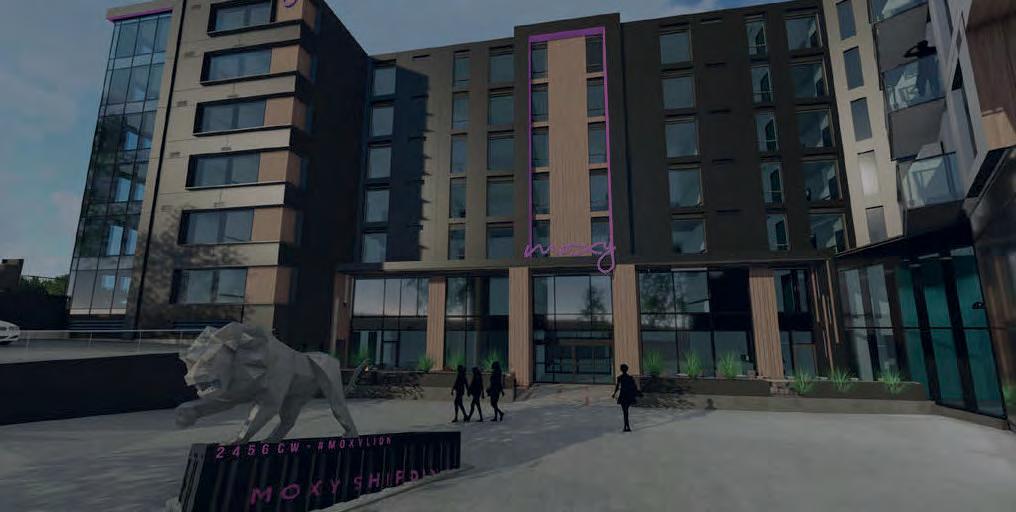
“Underwriting is a complex process and a lot of the time, it comes down to the product,” she says. “Does it need a renovation? What would be the cost to build and replace the product? Is there a re-positioning opportunity that could happen with a significant renovation?”
development@hotelequities.com

“Things have changed because in 2022 there was a huge bounce-back in the industry,” says Robin McLuskie, managing director, Hotels at Colliers. “Cap rates for urban hotels in Canada are in the five to six per cent range.”
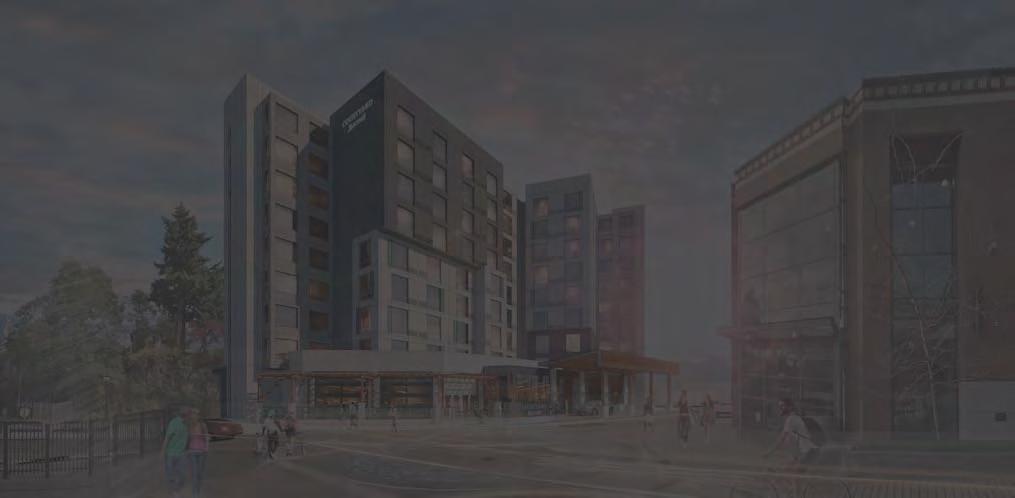

While she notes that inflation has had a big impact, the plus side is that hoteliers can take control of their product. “The beauty of hotels is that owners can price inflation into their daily rate,” says McLuskie. “That said, occupancy has not fully
Underwriters also take into account the management company at the operation’s helm. But how management companies can differ, depending on the nature of their product. In many cases, this simply comes down to its asset class. “The owner/ operator model has done particularly well in Canada,” says McLuskie. “If you have a smaller asset or a boutique hotel, then having a local management team is important; but if you have a larger asset, the lender will probably require that a strong company manage it –especially when underwriting the deal.”
Even despite growing inflation rates, the recovery from COVID has been stellar – and that’s a good thing for underwriters. ◆
Marcus Joo’s journey to Executive Director of Operations for RZH Hotel Group was a long one. It traversed the globe. It included a stop in another industry. And there were plenty of speed bumps along the way.
Joo experienced a lot during his life, and he turned it into a successful career as a hotelier. He helped turn RZH Hotel Group into one of B.C.’s premier hotel management companies.
The plan was to see the world as a commercial airline pilot, but his eyes did not co-operate and he had to abandon his dream. He studied business management and accounting while doing mandatory military service in his native South Korea. One of his early adventures was a backpacking trip through Italy, and before he knew it he was part of a labour exchange. He worked at a Milan hotel, doing a wide variety of tasks, and the seed had been planted. His friends thought the hospitality industry was perfect for him as well. “They said I love to help the people,” Joo recalls.
After a few years of globetrotting, including stops in Western Canada, Joo ended up in Vancouver. Before long a friend from South Korea got in touch to tell him she had purchased a hotel, Travelodge Parksville, on Vancouver Island.

"She asked me if I could help, because the hotel was in bad shape and had a bad reputation,” Joo says. “I said OK, maybe before I go back to Korea I can help you a little bit.”
That was 10 years ago. He still oversees that property — and many others. RZH Hotel Group ultimately bought that hotel from Joo’s friend, and it wanted Joo to stay on as manager. He flourished, naturally, and ultimately became the company’s executive director of operations.
RZH Hotel Group oversees 11 hotels in BC, and Joo has been busy instilling his knowledge and expertise in all of them. Joo is involved in all levels of operations, from individual hotel operations to accounting to reporting to researching new opportunities for the company.

Travelodge Parksville was the first branded hotel
for RZH. The company subsequently acquired four properties in Kamloops, two more hotels on Vancouver Island and had no intention of stopping there. Joo was involved and played a crucial role in the takeover process of Holiday Inn & Suites in Kamloops, Anchor Inn in Campbell River and Best Western Plus in Port Alberni. RZH is currently in the process of acquiring another Kamloops hotel—DoubleTree by Hilton—and Joo’s experience has made the process a smooth one.
“My vision for when I start working at RZH, and then when we started buying the properties in the Interior, was we wanted to make the company one of the most desirable companies that people would like to work at — not only wage-wise, but the kind of environment or the atmosphere where people really bonded with their work and they feel like they’ve been really considered and treated well.”
Joo’s colleagues at RZH call him the hardest-working employee on the payroll and credit him with plenty of the company’s success. They say there are few times when he is awake and not working. “Marcus always spared no efforts for the company,” one colleague says. “Whenever and wherever it needs him, he will be there and gives two hundred per cent of himself to support the property.”
Jo has given his all to RZH, but watching travellers come to his hotels as the pandemic started to ease got him thinking.
“It was actually triggering my soul — a lot,” Joo says. “Why don’t I travel now?”
Marcus is essentially the person responsible for the way all RZH hotels operate. He conducted staff training, implemented system upgrades, conducted sales and revenue analysis, and orchestrated improvements plans. He never put his own needs in front of the team. Despite all of his responsibilities and massive workload, he never hesitated to cover a night audit shift or to clean a room when his team needed support.
And that is what he is going to do. It doesn’t mean his time at RZH Hotel Group is done forever, but he needs to scratch that itch. The company is stronger because of him and we thank him.
“I never count myself as a perfect person for the hotel industry. I just love to help people.”
 - Marcus Joo
- Marcus Joo
“Itismyhappinesswhenpeoplesmile”


 BY ROBIN ROBERTS
BY ROBIN ROBERTS
With commercial property prices continuing to soar, developers are determined to squeeze profit out of every square inch of any square footage available. Enter mixed use. A well-planned combination of hotel, residence, office and commercial assets co-existing in harmony allows investors to derive revenue from diverse sources to maximize returns, while also spreading development and operations costs around to minimize any potential risk.
While some developers have become creative with their types of mixed use — URBY’s conversion of a 35-acre navy base in Staten Island includes the usual retail and restaurants, but also walking
paths and parks; Liberty Lorton’s transformation of a former prison in Washington, D.C., turned the inmates’ baseball diamond into a shared green space; Parq Vancouver’s gamble on an attached casino — most stick to the dependable blend of hotel/ residential/commercial enterprises.
“Residential real estate has started to correct itself a bit, but the valuations for site-plan approved properties to develop have not,” says Sandeep Gupta, vice-president of Toronto-based Sunray Group, which has several mixed-use properties in development, primarily in the GTA. “So, to buy the land and develop a hotel in a downtown core is cost prohibitive. Developers view [mixed-use] as a way to unlock the highest value for their
land as a whole, and residential tends to play in that field a bit more. Once site plans are approved, the valuations become astronomical. And a mixeduse development limits our risk on the property from a cash perspective.”
Mixed-use properties typically command higher rents from commercial tenants, who have a vested interest in keeping up appearances with ongoing improvements to their businesses, further benefiting the developer.
Aaron Laurie, senior director, Lodging Development, Eastern Canada for Marriott International, says the brand is actively involved in several mixed-use properties. A few recent launches include Autographs in downtown Halifax and Montreal, which feature retail, food and beverage, office space as well as rental apartments.
“In large urban centres like Vancouver and Toronto that have seen unprecedented land costs and now unprecedented construction costs, it’s more important than ever to diversify the [number] of components within a development,” says Laurie. “Also, available land in prime locations is limited, so it’s all about floor-area ratios relative to the size of land.”
Laurie says Marriott’s select-service brand, Moxy Halifax, which comprises 160 hotel rooms and 250 rental apartments that share facilities such as a swimming pool and fitness centre, is designed to get guests out of their rooms. “The hotel has very small rooms because the focus is really ensuring guests maximize their time in some of the social spaces,” he says.
Another plus is that lenders are often more confident financing mixed-use developments because of the various sources of income that will cover the debt. “Hotels, as an industry, are cyclical; they have their scales and the lending is always difficult,” says Gupta. “But lenders look very positively on mixed-use: if one portion is a bit slower with cash flow, you can offset it from the other.”
Carrie Russell, senior managing partner at HVS, however, says lenders place different criteria on mixed-use projects that could prove challenging. “They look at the components separately [and] do underwriting for the hotel and
[another] for the residential. They’re complicated projects with a lot of legal agreements that have to go between the two.”
To bypass the high costs and space constraints of a downtown core, Sunray and others have cast their eyes to the suburbs or, as they’re also referred to, “secondary markets.”
“We opened a Marriott in Markham (Ont.) about six years ago, Markham being a great example of a secondary market,” says Gupta. “The Marriott building itself is adjacent to, or connected to, residential, plus loads of retail, entertainment, and a movie theatre. The same with an Autograph we recently opened in Burlington (Ont.), a secondary suburb 45 minutes west of Toronto, where the residents living within that mixed-use community benefit from the services of that Autograph as well as all the food and beverage nearby.”
Laurie says the majority of luxury projects in the Marriott pipeline are in the mixed-use space, noting the appeal of cross-over services between branded hotel and residential as a lure.
“Condo owners get those 24/7 on-demand hotel services – in-room dining, access to spa services, use of the hotel’s event space for functions, and, I believe, platinum status for other Marriott hotels around the world.”
He says many people who lease these units are also emotionally tied to a brand. “That connection turns into a desire to live within that lifestyle or distinctive community.” When that emotion cools, condo owners can opt into a voluntary rental program for a revenue stream themselves.
Being part of a community, as it were, the businesses benefit from each other’s patrons, not to mention the prestige of being associated with an upscale brand such as a Marriott or Ritz-Carlton.
The key to a successful mixed-use property is partnering with the right mix of retailers, restaurants, service and entertainment options that not only complement one another but will offer residents and guests distinct experiences
that keep them coming back. Hoteliers, for example, might stock products from an onsite spa, or offer coupons for attached hair salons or restaurants.
Partnered companies should also reflect the hotel’s own brand, image, reputation and status. “If you’re affiliated with a five-star hotel, your condo development [and business] has to justify being associated with a five-star hotel,” says Gupta, who himself calls Ritz-Carlton home. “It plays a big role from a prestige perspective.”
Russell agrees. “A hotel brand often will add cachet and increase the value of the condo. You can sell the condo units for a higher price per square foot because they’re associated with an [upscale] brand like Shangri-La, Ritz-Carlton, or Fairmont Pacific Rim.”
Russell says the initial planning for such a development can be the most challenging. “It’s about all the numbers coming together, pencilling out the various complexities of how to build because the floor plans are different for condo versus hotel and office versus hotel,” she says, including having enough parking for residents, guests, and the businesses.
Security can also be an issue. If, for example, you have a rooftop bar or restaurant that draws outside traffic, you’ll need to protect guests and residents with their own key card access to their floors.
Gupta also points out that maintenance and property taxes for residents are generally higher because the property is considered commercial. As well, during the development phase, efforts to change a zoning to mixed use takes time and money. “And you don’t have cash flow coming in during this period.”
In addition, Gupta says it’s preferable that the developer of mixed-use projects specialize in the segment. “In many cases, the hotel is the smaller component and the residential is the core anchor of the development. It’s important to engage a brand not only for the name and trademarks and licensing of the hotel, but also to have proper management in place.” ◆
Throughout his extensive career as a hotelier, David McBean has been able to transition seamlessly between global brands and independent properties, while bringing passion and talent to the table.
After working in Revenue Management and Operations with brands such as Delta Hotels in Vancouver and Sun Peaks Grand Hotel & Conference Centre, and most recently as director of Operations at Spirit Ridge, in Osoyoos, McBean is happily settling into a new role as GM of the Watermark Beach Resort, situated in the stunning desert landscape of Osoyoos, B.C.
“Watermark is an amazing resort located in the heart of wine country, in Canada’s only desert,” says the 42-year-old hotelier. “We’re currently elevating the property both in product and service, to provide a luxury feel.
What makes the resort unique, says McBean, yet similar to some of the other hotels he’s worked at “they’re all resorts with luxury condo product and stratas. The condo product is unique in the operation. The operation and type of guest is different. The length of stay increases, and the impact on F&B changes when your units have full kitchens.”
The native of Alberta graduated from Toronto’s Centennial College and cut his hospitality teeth while working as an elevator operator at the CN Tower before landing at the Crowne Plaza just as the city was dealing with SARS. It wasn’t until he returned to Alberta to work at the Fairmont Lake Louise that he found his calling.

These days, the trilingual McBean is fuelling his passion for delivering remarkable guest experiences while focusing on upgrading the resort. “We’ve just completed renovations to our ballroom and hallway, and public area renovations are underway. We’re upgrading IT by changing our PMS to Opera Cloud, and also moved our customer-service management system to Medallia, and our guest-request tracking system, HOTSOS, has just gone live.” The hotel is also doing a mattress and linen conversion. “Our restaurant, 15 Park Bistro, has just finished installation of walls around the patio and new gas heaters that will greatly expand the outdoor patio dining season.”
But it doesn’t stop there. McBean says the resort is focusing on recruitment. “We know if we can expand our offering and service levels across the resort by having enough employees to deliver our services, it will be that much better. We are almost fully recruited for the summer season already.”
As a beach resort, the hotel is an ideal wedding venue as well as a great family destination. “Our resort has a brewery on-site, a full-service spa, partnerships with a watersports company and a marina with boat slips available for guests to rent. We have something for every demographic.” ◆
Define your style?
“I’m extremely hands on. I received a few surprised looks from my public spaces team when they saw I was able to teach them the best way to shampoo a carpet.”
“Working with the team members — whether it’s mentoring staff, speaking at hospitality schools, or assisting refugees from Ukraine in finding a second chance in Canada."
Hobbies: “I’m a bit of a foodie and love exploring wine country. I work hard so I can explore the world. I’ve been fortunate to have visited over 60 countries in my life… and counting.”







Marriott continues to evolve, while staying true to our roots, by providing an expansive portfolio of brands, peerless global booking and marketing engine, unmatched guest loyalty through Marriott Bonvoy, and a focus on driving long-term pro table partnerships with owners. Get started today and own the future.


